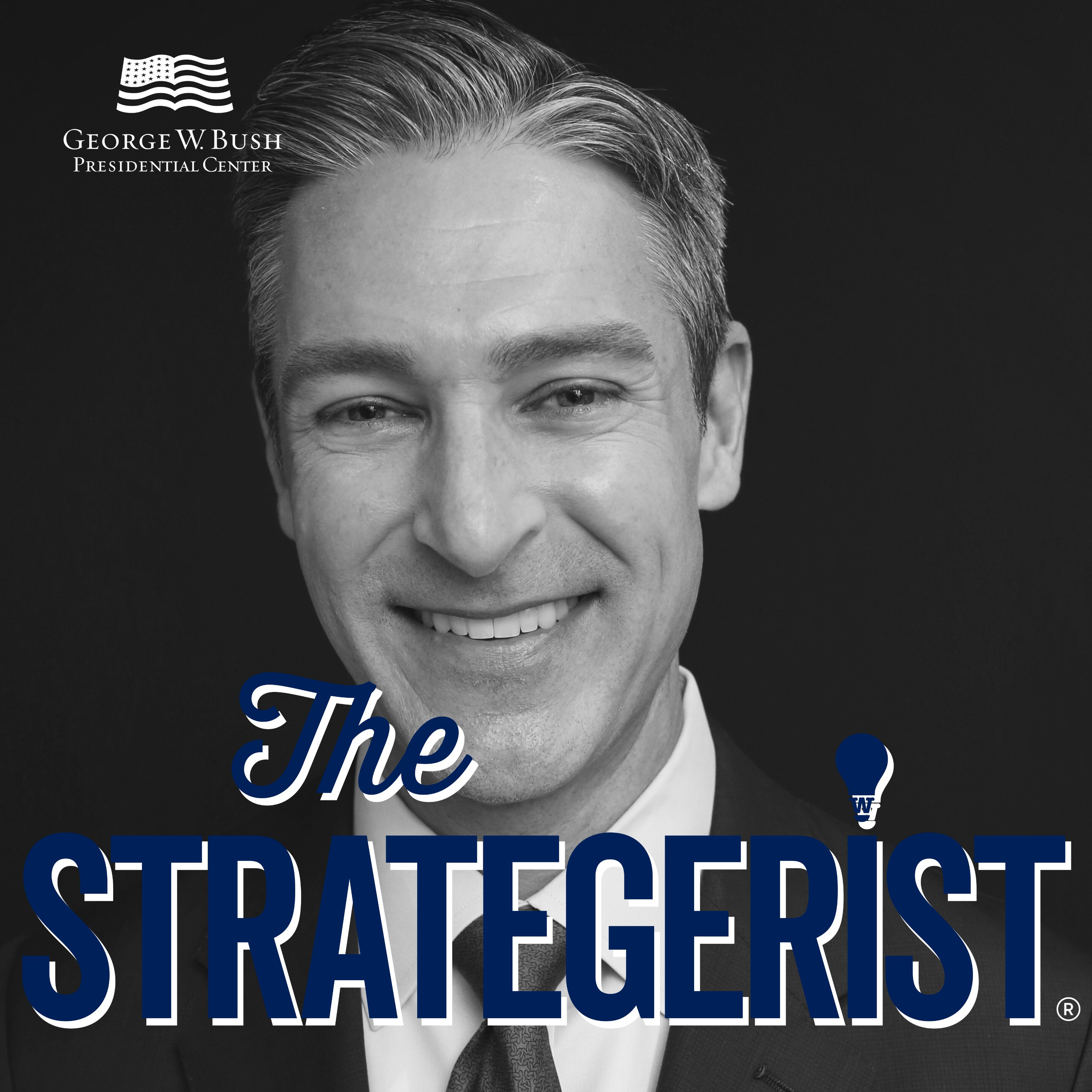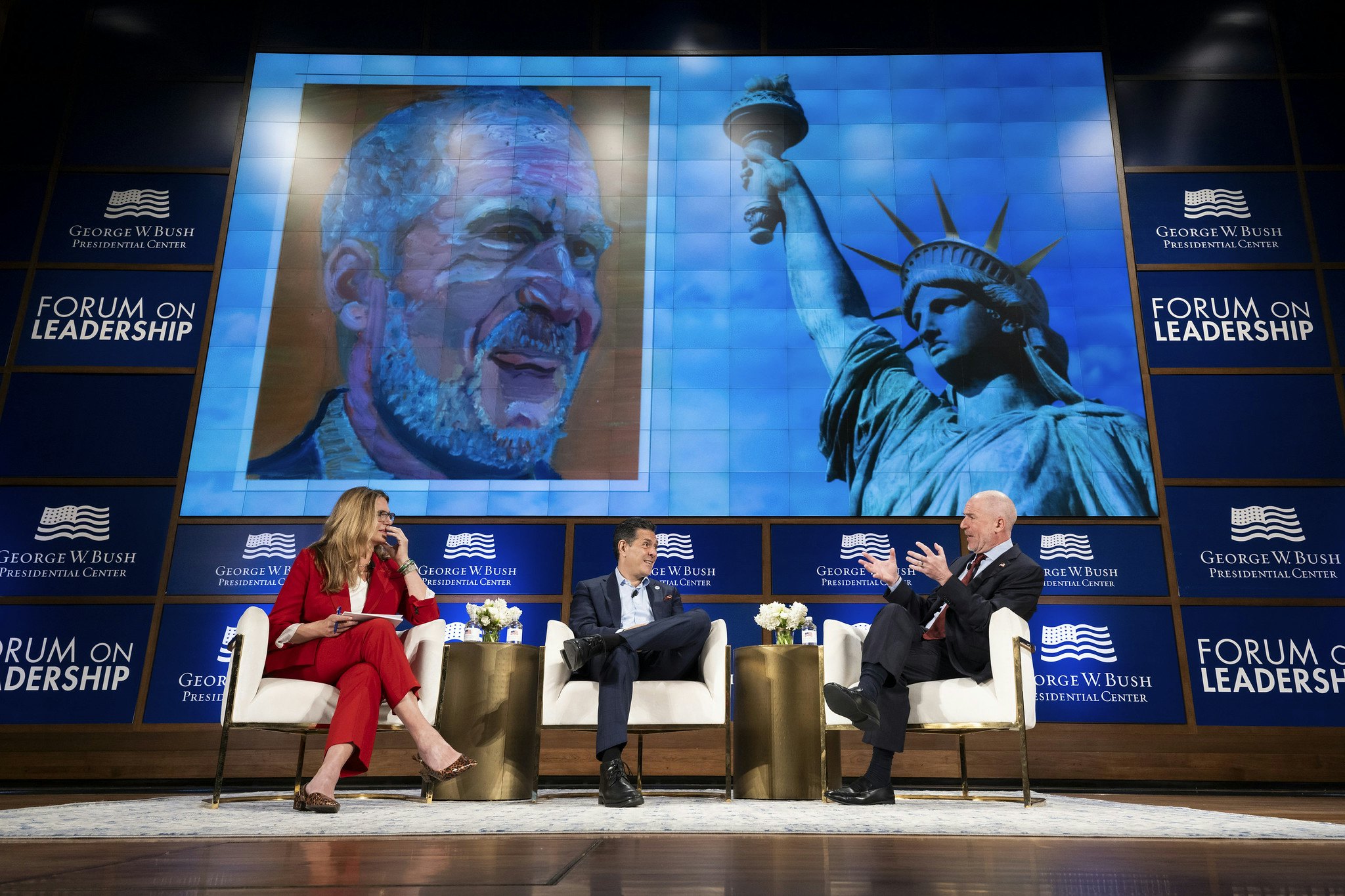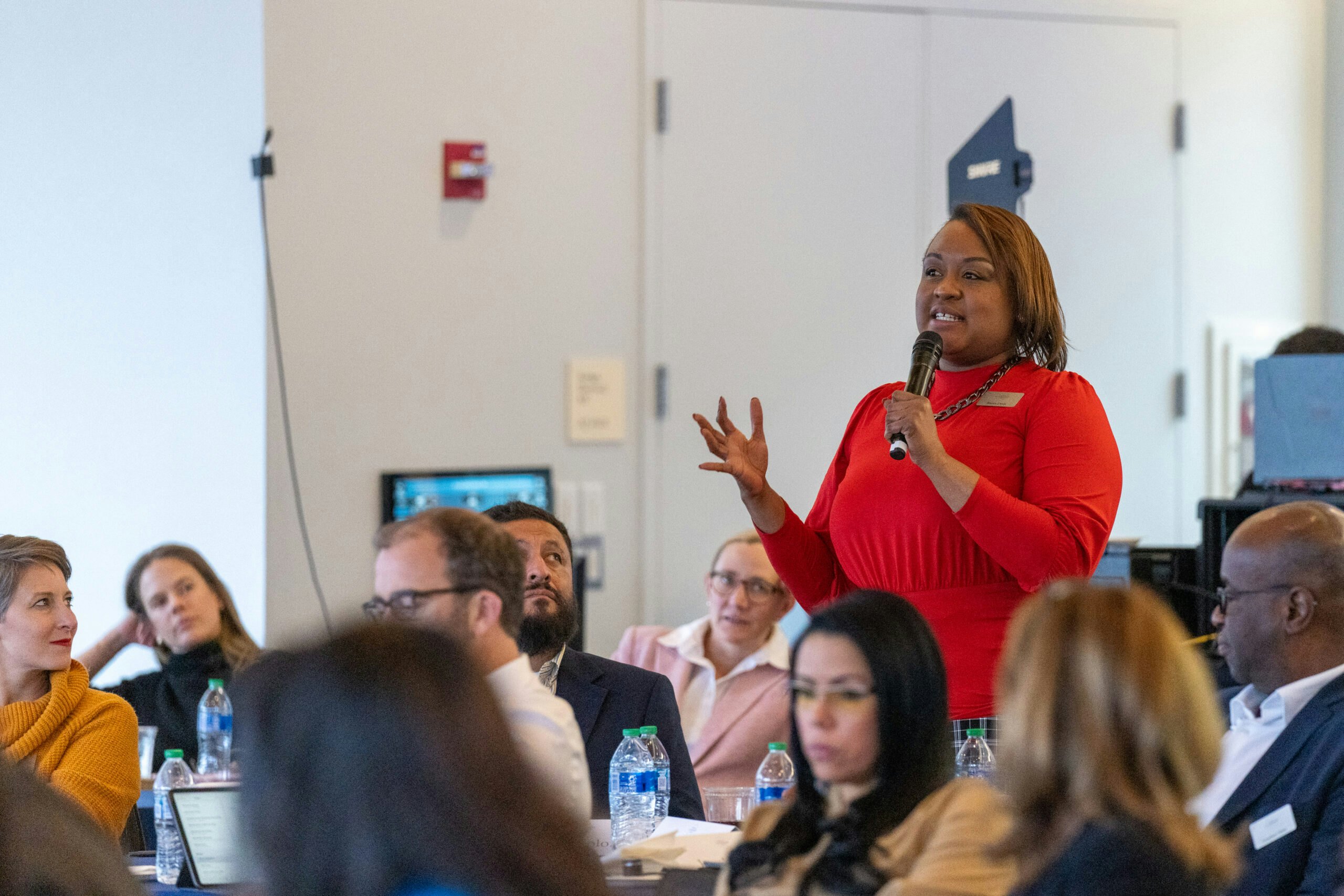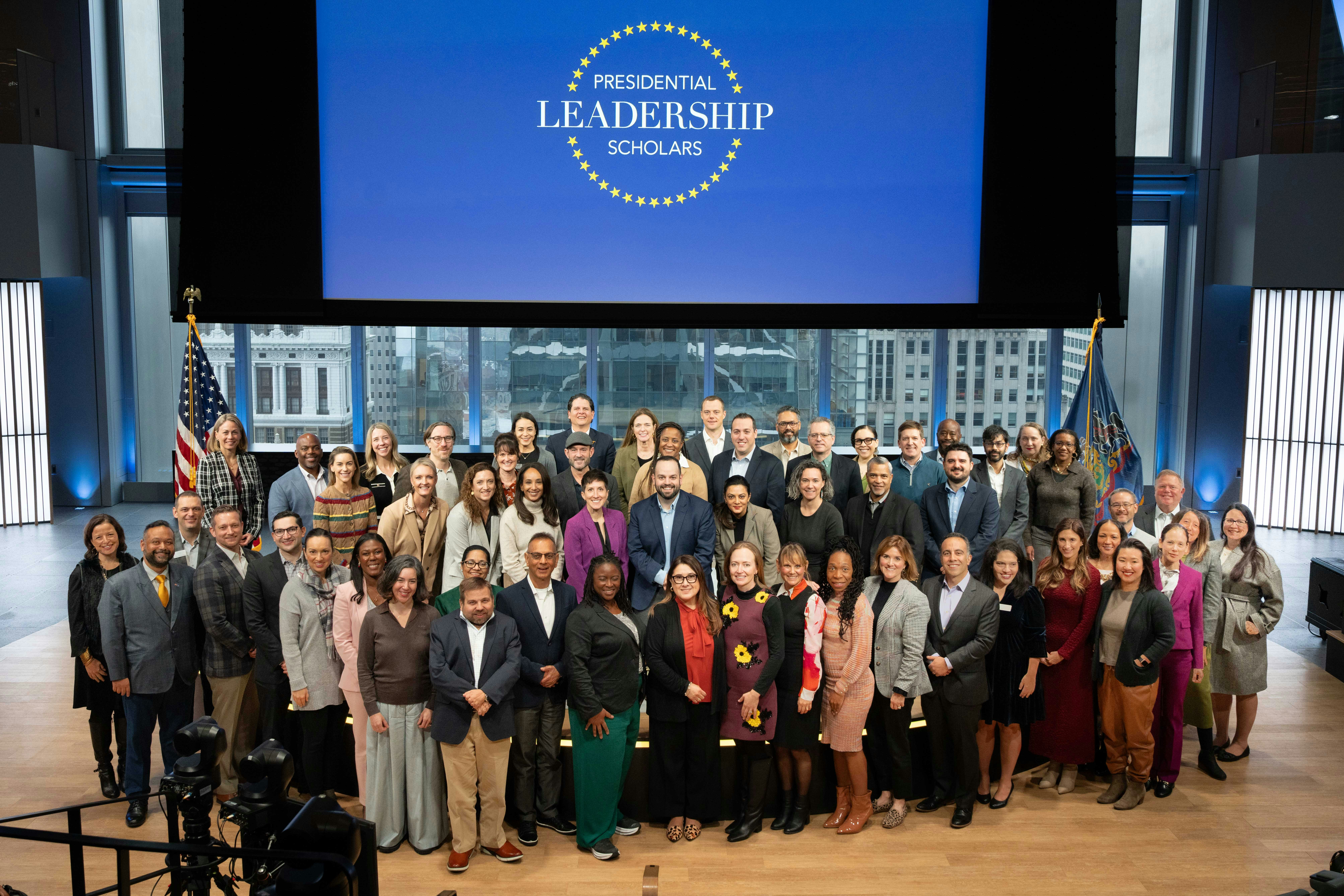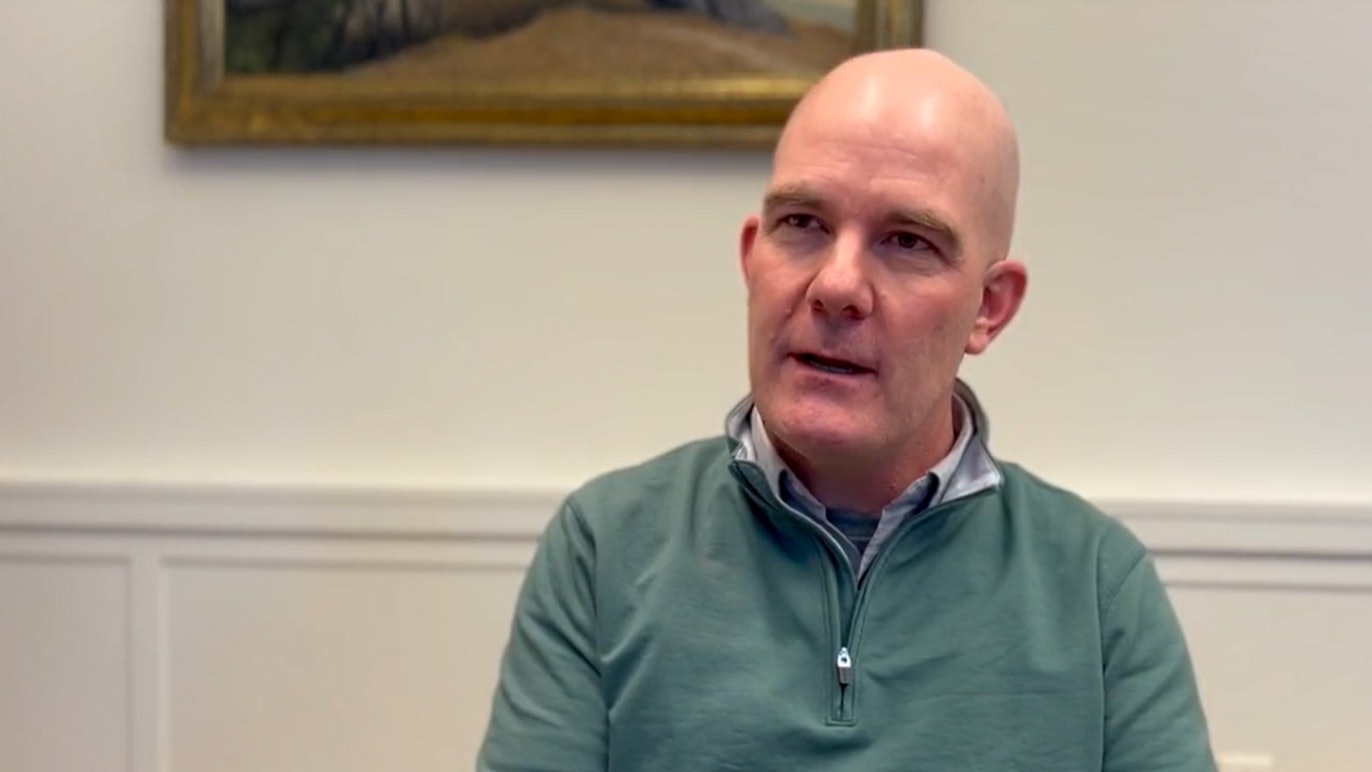Randell Trammell, 2023 Presidential Leadership Scholar, Georgia Commissioner on Civic Education, and CEO of Georgia Center for Civic Engagement, discusses his passion for education and the lessons he learned in the Presidential Leadership Scholars program.
Please tell us a little bit about yourself and your personal leadership project.
I am passionate about education as I know firsthand it is the universal key to improving the future for our nation’s children. Regardless of where a child begins and what ZIP code they are born into, education offers an opportunity – a path and even at times a plan – for students to pursue their own version of life, liberty, and happiness. I’ve been in the education/youth development field for over two decades. My specialization is civic education and youth civic development, which is what my personal leadership project was built upon.
The project itself, Civic Sunrise, is designed to enhance students’ civic knowledge, identity, and engagement through a multitiered approach. The project is based on the idea that increased civic knowledge leads to greater civic identity and engagement. Named after Benjamin Franklin’s “rising sun” metaphor during the Constitutional Convention in 1787, Civic Sunrise has a two-part strategy: one focused on training teachers as civic coaches and another on providing students with interactive civic experiences. Teachers receive training to improve civic education in classrooms, while students participate in simulations, forums, leadership opportunities, and mock elections, helping them understand and exercise their rights and responsibilities as citizens. This hands-on approach aims to inspire students to see themselves as essential contributors to democracy.
My personal leadership project, Civic Sunrise, has been more clearly defined with a focus on building a pipeline to public service. We have successfully developed and launched a high school pathway on government and public administration with the Georgia Department of Education. Students take an in-depth journey through local, state, and national government structures, careers, and explore their own role as both citizens and perhaps employee in a series of three career and technical education (CTE) courses. The goal is not to build a pipeline of elected officials, though some will rise from the process, but rather to help students understand that there is a whole world of public service (elected, employed, and volunteer) that desperately needs workers.
My organization, the Center for Civic Engagement, serves as the Career Technical Student Organization (CTSO) for the pathway, which includes junior ROTC. We are for government what the National FFA Organization (FFA) – formerly known as the Future Farmers of America – is for agriculture education. In our programs, students participate in simulations, engage with government employees and elected officials, and chart their own pathway to public service. Success for us is a post-graduation plan that includes enrollment in a postsecondary institution, enlistment in the armed forces, or employment. We are having conversations with other state departments of education about expanding the work of the CTSO into other states to support building their pipeline to public service.
Outside of work, I’m a husband to Catherine, a special education administrator for a school system, and have three very busy kids (Georgia Caroline, 9; Lincoln, 7; and Emery Claire, 4). As a hobby, I have also picked up writing children’s books, mostly on government or historical topics, to help teach my children and others. I have recently published my sixth children’s book, which happens to be on President Jimmy Carter.
Please give us an update on what you have been working on since completing the Presidential Leadership Scholar program.
While I was in the class of 2023, the program seems like a lifetime ago and last week all at the same time. Since completing the program, I have been working on the leadership project above through my work. I have been appointed by Governor Brian Kemp as the Chair of the Georgia Commission on Civics Education. I have written a few children’s books as well.
Which lessons learned during the Presidential Leadership Scholar program have stayed with you the most, and how have you put them into action?
Two recurring themes from the program have been especially important to me over the past year, influence and persuasion as well as strategic partnerships. Through my roles at the Center for Civic Engagement and as Chair of the Georgia Commission for Civics Education, our focus is on boosting civic education in Georgia schools. The lessons from the LBJ Library module on influence and persuasion stand out – like LBJ’s creative use of postmasters to enforce integration during the Civil Rights Movement. STEM and literacy are critical, but every student will become a citizen, and the question is, what kind of citizen do we want to produce – active and informed or uninvolved?
After influencing and persuading others, the work truly begins with strategic partnerships – another PLS lesson. My focus is building a pipeline to public service to address the upcoming wave of retirements, what I call the “Silver Tsunami.” Strategic partnerships with groups like the Georgia Municipal Association and the Georgia Department of Education have been essential, as we work together on a unified plan for public service sustainability.
One of the greatest, unexpected gifts from the PLS program is the support of my classmates and alumni. They provide inspiration, connections, and help when needed, pushing me to make a bigger difference every day.
What drives your work supporting youth civic engagement, and what is your advice for children and young adults who are curious about becoming more informed and active citizens?
The key message is that we are shaping citizens every day, whether we realize it or not. Turning 18 doesn’t magically grant young people an understanding of their rights and responsibilities; they learn by example, through community service, and by witnessing how things are done.
When I speak to young people, I often compare civics to a video game. I tell them: “Wouldn’t you want to know the controls, rules, and how to win? Civic education gives you the tools to `play’ democracy and make your community better. The Constitution is like a cheat code, outlining the rights and rules for everyone, including you.”
I remind them that young people have always been drivers of change, from the Civil Rights Movement to environmental advocacy. Their voices are powerful and needed now more than ever.
You recently published a new children’s book, Presidential Pals: Discovering the Legacy of Jimmy Carter, about three siblings exploring the fascinating life of President Jimmy Carter. What inspired you to write about President Carter’s life?
The journey of writing children’s books was to help teach my own children about the State Capitol, what city workers do, etc. When I was looking for age-appropriate resources, I couldn’t find any. So I decided to write some myself.
The project on President Carter was a special one as he is a son of Georgia – a state senator, a governor, a president. When I started writing the book, there was not one single children’s book telling the story of his remarkable life. I wanted my children, and all of Georgia’s children, to have something that would help them know that an ordinary person can have extraordinary impact. I treat the book as if it were a family outing and tell it through the perspective of my own three children (Georgia Caroline, Lincoln, and Emery Claire). In a common adventure that feels like going to their grandparents’ house, their imaginations come to life through the stories that Mr. Jimmy and Mrs. Rosalynn shared.
You’ll notice the title is Presidential Pals: .… This is intentional as there are other presidential stories to be told. Who’s next? Bush 41? Bush 43? Clinton? LBJ? Stay tuned.…






